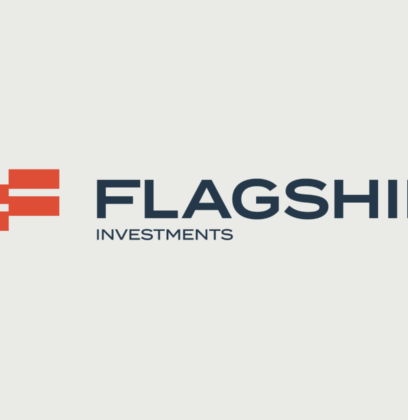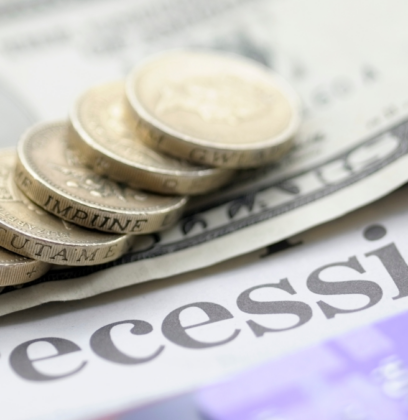
In a world with daily technology advancements, rapid climate change, and an increased cost of living, making responsible investments is more important in Australia than ever. At Flagship Investments, we believe that Environment, Social, and Corporate Governance (ESG) factors play a key role in long-term investment outcomes. That’s why we operate under a responsible investment framework, protecting our investors’ capital while working towards a more sustainable future. Let us tell you how it works.
What is Responsible Investing?
Responsible investing is a multifaceted investment approach that aims to produce positive environmental and social outcomes while still generating investor returns. The model operates on the understanding that ESG factors significantly impact investment sustainability and performance. Responsible investors consider these factors and use them to make informed and sustainable long-term investment decisions.
Why Invest Responsibly?
The main goal of responsible investing is to create a more ethical and sustainable future. But did you know the practice offers immense financial growth potential, too? By minimising risks, committing to sustainability efforts, and implementing ethical policies, responsible investors safeguard their financial endeavours to help yield competitive returns.
The formula is simple: minimised environmental and social impact = resilient corporations and sustainable returns.
Below are some more reasons to invest responsibly.
Client Demand and Consumer Trends
There is a big societal shift towards ethical organisational practices. Adopting a responsible investment framework allows corporations to realign their values to those of their clients. A 2024 report from the Responsible Investment Association Australasia (RIAA) supports this notion, revealing that ‘88% of Australian investors expect their investments to be responsible and ethical’, a figure we expect to grow in the coming years.
Policy and Reputational Capital
As time goes on, more government bodies introduce sustainability policies and protocols. Responsible investors who have already made a conscious commitment to these guidelines stay one step ahead of the competition, increasing their resilience and sustaining financial performance.
They also protect and strengthen their reputation, avoiding the controversy and backlash that arises from unethical investment practices.
Financial Materiality
Evidence shows responsible investments can equal and even outperform traditional ones. Additionally, entities that operate under ESG methodologies tend to have better risk management, more efficient operations, and stronger innovation capabilities, all of which drive financial performance.
Fiduciary Duties
There is a duty of care that arises when dealing with other people’s funds. Investing with responsible companies and asset managers means all investment decisions are made in your best interest, not the other way around.
Investing Responsibly — The ESG Framework
Coined by the United Nations Global Compact, the ESG framework provides a series of metrics to help investors measure their social and environmental impacts. Investment entities, such as Flagship Investments, rely on these metrics to make informed decisions that provide positive environmental outcomes and optimise investor returns. The ESG criteria include:
- Environmental factors
- Social considerations
- Corporate governance
Environmental
Environmental metrics focus on how a company’s operations and practices actively reduce its ecological footprint. It encompasses all aspects of the environment, including climate change, pollution, and habitat conservation. Responsible investors have solid guidelines and policies to address environmental concerns head-on, whether through stringent screening processes or collaboration with stakeholders.
Social
Corporate Governance
Corporate governance refers to the ways in which corporations operate as a whole. It is a network of processes, practices, and rules that stipulate how a company is directed and controlled. In regards to responsible investing, corporate governance zeroes in on business leadership ethics, examining their response to pay, audits, internal controls, conflicts of interest, shareholder rights, and overall accountability.
How to Do It: The Six Principles For Responsible Investment (PRI)
There are many ways investment companies and asset management firms incorporate ESG into their operations. At Flagship Investments, we adhere to the six Principles For Responsible Investment (PRIs). These guidelines have been developed by investors for investors to help further solidify their commitment to ethical and fair investment practices. The six PRIs are:
Principle 1
Incorporate ESG issues into investment analysis and decision-making processes.
Principle 2
Be active owners and incorporate ESG issues into ownership policies and practices.
Principle 3
Seek appropriate disclosure on ESG issues by the entities in which we invest.
Principle 4
Promote acceptance and implementation of the Principles within the investment industry.
Principle 5
Work together to enhance our effectiveness in implementing the Principles.
Principle 6
Report on our activities and progress towards implementing the Principles.
Practising What We Preach: Incorporating PRIs At Flagship Investments
As an RIAA-certified listed investment company (LIC), we believe sustainable business is good business. We stand firm in our promise to always act fairly, honestly, and in the best interests of our beneficiaries. Our Sustainability Statement reinforces this commitment, ensuring we not only protect but enhance our shareholders’ capital. With the assistance of Investment Manager, EC Pohl & Co, here’s how we at Flagship Investments incorporate ESG and PRI into our business functions to contribute to responsible investing in Australia.
Active Ownership and Stewardship
As an Australian LIC, we understand the responsibility that comes with handling other people’s funds and are committed to doing so with expertise and the utmost care.
Our Active Ownership & Stewardship Policy holds us accountable in that regard, ensuring we continue to strive for improved long-term investment outcomes that protect assets.
We understand how short-term returns can compromise long-term portfolio performance and place emphasis on the importance and ethics of long-term investment strategies. At Flagship Investments, we take our role as active owners very seriously, integrating ESG considerations that are in line with PRIs into our operations. In particular, we leverage share voting and company engagement strategies to ensure responsible investments that support the community, climate, and Australian economy.
Screening
For us at Flagship, there’s no room for poor operations and irresponsible asset management. To demonstrate our dedication to sustainable investments, we adhere to a strict screening process to exclude companies and sectors that are inconsistent with our Responsible Investment Policy. As such, we actively avoid companies that:
- Exploit human rights;
- Fail to comply with labour standards;
- Have poor risk management;
- Cause harm to the environment.
Invest Responsibly With Flagship Investments
If you’re ready to partner with a responsible listed investment company in Australia, Flagship Investments welcomes you. Our quality portfolio of Australian growth companies has been expertly crafted to support the Principles of Responsible Investment Initiative, ensuring a sustainable business model that protects your assets. Reach out to us to discuss your investment goals, and together, let’s work towards a more sustainable financial future.













